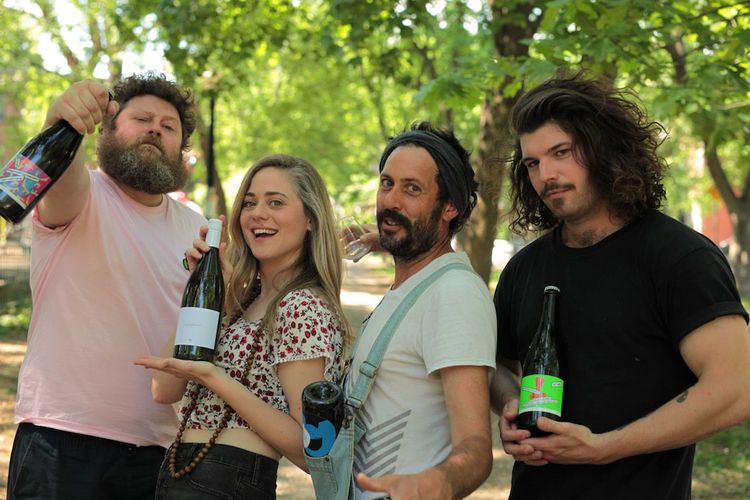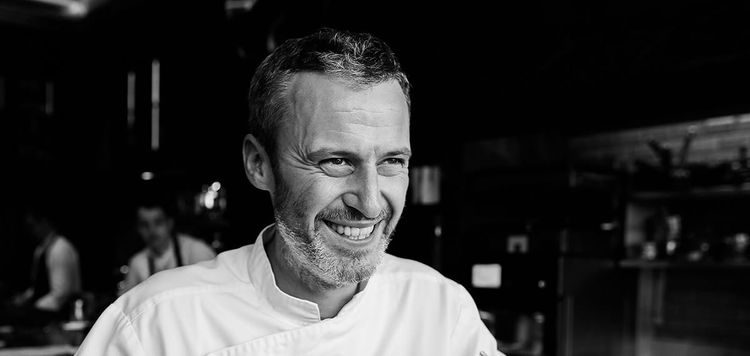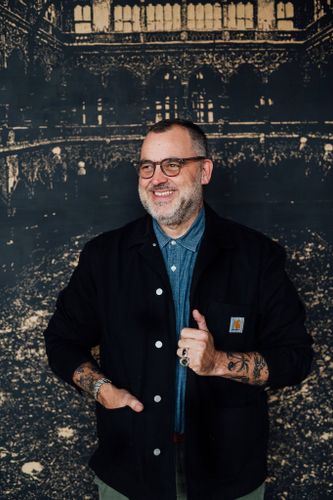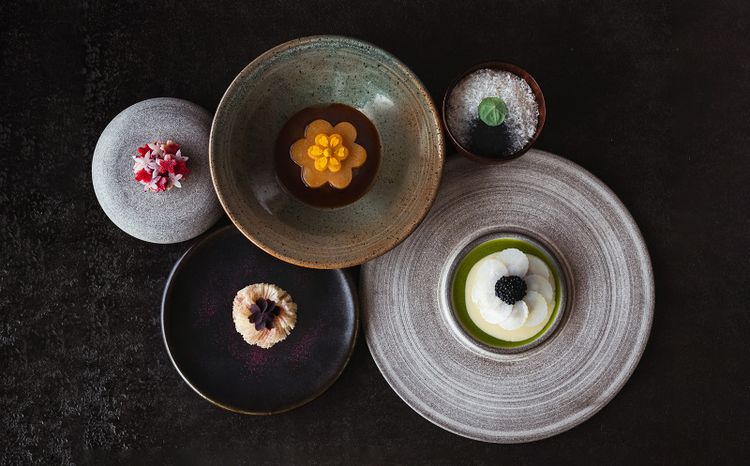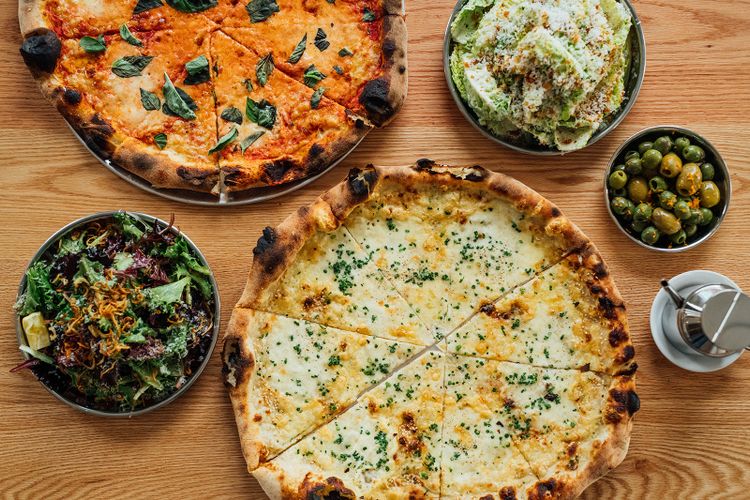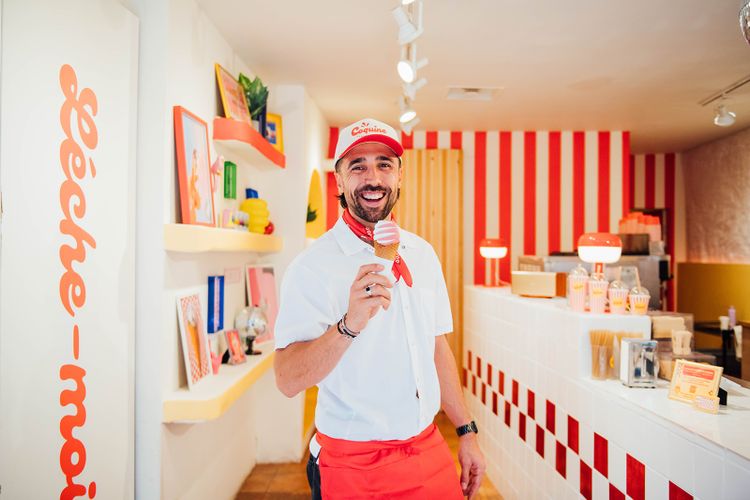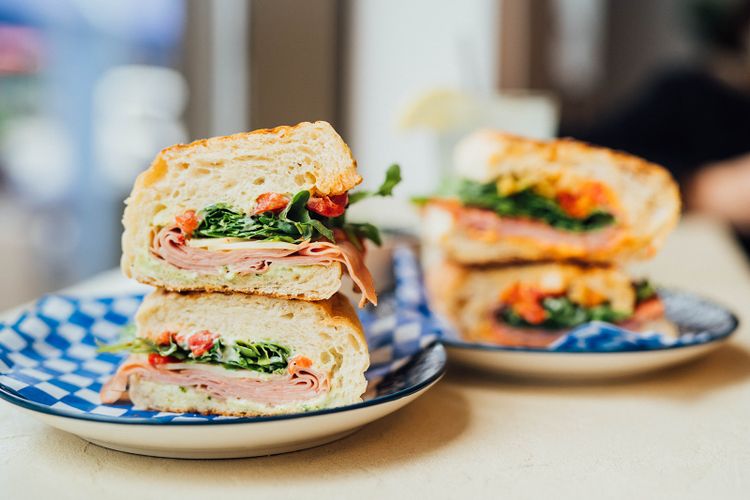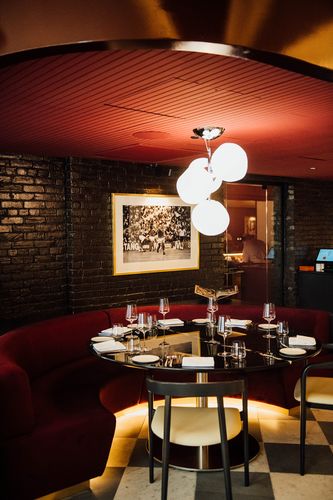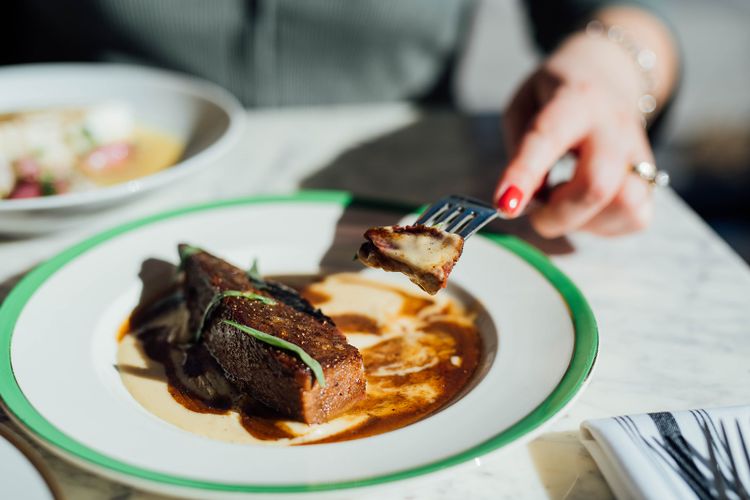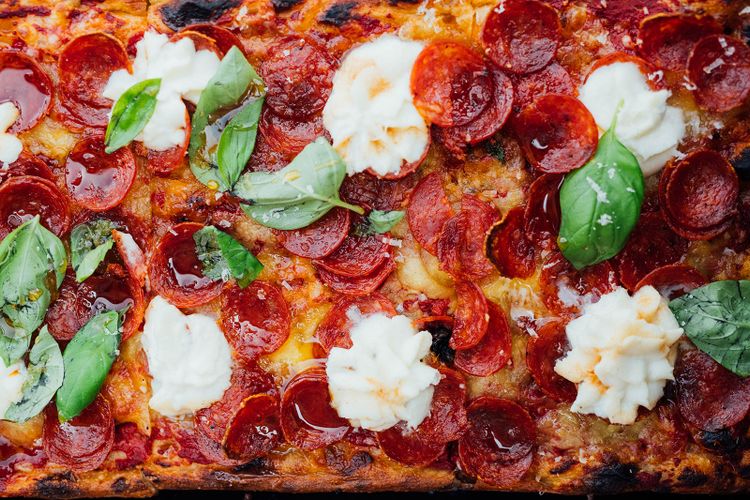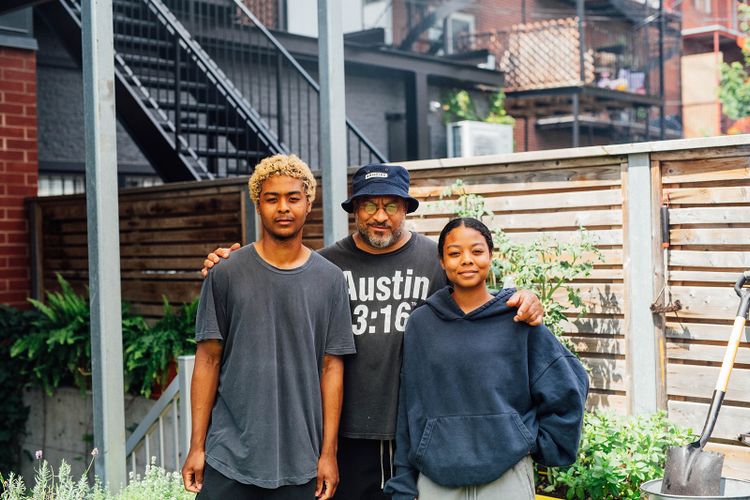Frédéric Morin: The backbone of the Joe Beef group

Frédéric Morin is co-owner and co-founder of the Joe Beef Group – Joe Beef, Liverpool House, Vin Papillon, McKiernan, Joe Beef products and +++. Together with his wife Allison Cunningham and former partner David McMillan, he has succeeded in putting Montreal on the map as a food capital of the world. Recently, Fred and Allison acquired the majority of the shares in the famous group. After this exceptionally difficult pandemic, we wanted to meet the chef who, after several years, is back in management and in the kitchen of his restaurant; because like all people, when you have a business, it’s a lifelong project!
Frédéric Morin grew up in Cartierville, and never thought he would work in the restaurant industry. After high school, Fred studied agriculture for three years at the Institut de Technologie Agricole and quickly developed a passion for greenhouses. It was his accounting teacher, Claude Barnabé, who, always noticing him writing recipes in the ledger, one day asked him why he didn’t enroll in a cooking school instead; a great idea. At the time, it was too late to enroll at the ITHQ, and so Frédéric enrolled at the École hôtelière des Laurentides. “It was the last cohort of former French chefs to arrive for Expo 67.” He was 19 years old, and it was hard for him to be alone in the countryside and feel good. He was still far from being ready to open a restaurant, but had a passion for horticulture and agriculture.
Fred also developed a passion for old French cookbooks and an interest in culinary know-how. “A favourite is not rational. I grew up with Louis de Funès’ films. The procession or the procedure, the unfolding of a French meal, this ritual is fascinating to me. In Quebec, we don’t really have a gastronomic culture as such, we have a survival and settlers’ cuisine from which we borrow and integrate certain things. And with a French-Belgian mother, I quickly identified with this French cuisine for which I am still passionate.”
Not having a TV and living in the country, Frédéric Morin read constantly! He spent his loans and grants on Time Life and Larousse gastronomique; he also bought useless cooking items and practiced constantly, at home or at school. To this day, Fred is a bit of a walking encyclopedia.
After the first year, he went to Tunisia to do an internship for four months. In the summer, he worked at the Jean-Talon market. During his academic career, he did an 11-month internship at Toqué!—which was located on Saint Denis Street at the time—and ended up working there for two years. He worked with Stelio Perombelo, Dyan Solomon, Éric Girard, Yann Perreau, Martin Falardeau, Patrick St-Vincent, and many other great chefs.
Then, Stelio and William Frachot took over the Caprices de Nicolas, where he worked for a year. He then went back to work at the Jean-Talon market and decided to return to Africa, this time to Senegal and Burkina Faso.
Upon his return, Fred had to choose between a small number of very good restaurants, including Mediteraneo with Claude Pelletier and Globe with David McMillan. “There weren’t many cool restaurants back then!”
Frédéric Morin arrived at Globe in 1999 and stayed until 2005. There, he met Allison; his future wife, mother of his children, and partner in the Joe Beef group. He also met David McMillan, his business partner with whom he would work for over 20 years.
One of his mentors (who doesn’t know it) is chef Riad Nasr. “When he worked at Balthazar in New York, he was making real food for 600 people a night. That really impressed me! He was a role model for me—that you could be a good cook and do those things. And at Globe, I learned that: to cook well while making large quantities, and fast.”
Frédéric Morin then opened what would become the famous Joe Beef restaurant in Little Burgundy with Allison and David. This restaurant was one of the first to be established in this neighbourhood; which is now by far one of the most popular in the city. They all lived around Atwater and the owner of the café that was in the Joe Beef space didn’t want it anymore.
Why did they choose this space? “When you’re young, you don’t make a business plan to weigh the pros and cons… things are decided a lot by feeling. You feel good somewhere and so you go for it. That’s what we did.”
Joe Beef opened and, like Pied de Cochon–which according to Fred is a major player in Montreal’s culinary heritage—has had a major impact on the restaurant industry in Montreal. Not only for its location in the city, but also for many other reasons: the restaurant has no decanter, no crystal glass, no uniform, and you can savour oysters at the bar or aioli in the garden. These are things that are common now, but back then, they didn’t exist!
When Joe Beef opened, Frédéric Morin was in the kitchen. “I love to cook.” He prepared French cuisine with a touch of Quebec generosity. It was an instant success.
However, as the years went by, Fred became more and more absent from his kitchen. It was “circumstantial”: “some fantastic chefs came to take over the restaurant—François Côté, Marc-Olivier Frappier, Gabriel Drapeau, Ariel Schor, Emma Cardarelli… and it suited them to take over the kitchen. It wasn’t a departure, nor a retirement, but I could spend time with my children, who are now 8, 11 and 12 years old and who all play hockey. I’ve watched them grow up. It’s wonderful.” But the more you let others do, the harder it can be to return.
Having a fast-growing business also takes follow-through; you have to be able to write it down and explain it to new team members. At that time, the team also published two books, which obviously took a lot of time and energy. “We were also often invited to cook elsewhere, so we were on the road a lot. The pandemic put a stop to all that, and all the better. A restaurant is not a TV studio, it’s not a writer’s office; without a restaurant, without people working there, there’s nothing.”
In December 2021, the chef de cuisine for the Joe Beef Group left to work at Wecook (!) and his longtime business partner, who was extremely prominent in the media scene decided to leave the restaurant industry with a bang (!) What did all of this, plus the pandemic, change for Fred? “Nobody saw the pandemic coming, nobody can change things. Society as a whole found it incredibly hard. We did take-out and got through it. One thing that was missing with Zooms, FaceTimes, calls and the like was the lack of daily interaction. The hellos, the human communication. People enjoy talking to each other in person and I think we’ve done a good job of that.”
“Now I also like a bit of routine, I like things to be more predictable. The quick succession of unexpected starts made me realize that we’re not just hanging on, we have something fantastic here, and we need to preserve it. And it’s better late than never. I didn’t come back to change things; we’re the same, but we’re more mature, we’re closing our doors a little bit earlier. I have no control over people’s aspirations—it doesn’t concern me anymore. You have to know a lot to comment or have an opinion; it’s none of my business anyway. I’m happy with the way things are going. I think if we look at it now, within our walls, we can improve things; as much on the human side, as on the food, aesthetic, and practical sides. We still have plenty of work to do!”
With the pandemic, the locals have quietly taken over from the tourists at the restaurant bar. “When I leave in the evening, and it smells like truffles and everyone is happy, I am too. This is the place for Chris, Benji, Isa, Andy, Laura, Marius, Florence, JP, Jeanne, Al and Dave Alfred. They already knew what to do before me, I didn’t show them how to do it. I come back to Riad, but when I see him in the kitchen, preparing his monkfish, making his cutlets. He is older than me, and he works in the kitchen, he does not make a story or a telenovela.”
What do we wish for Frédéric Morin in the future? “We have to learn to be happy with what we have now. Stop always wanting more or blaming circumstances. You can only wish for things—but in this business, you have almost no control. There are rarely bad people, but there are often bad matches. Everyone has their reasons, there’s something for everyone. I’d like my kids to come to the restaurant later and be proud. Not pampered little assholes, but really proud. I’d like the people to come in with their kids, I’d like our customers’ kids to keep coming in and having fun. If in 10 years I have a 50-year-old manager on the floor because he has a great work-life balance, I’m going to be proud that we were able to pull that off.”
We can only hope that everything works out that way. And to be done with pandemics, wars, and other catastrophes for good. Because spending a magical evening at the bar at Joe Beef, in the lively atmosphere, with the attentive care of the staff, is truly something special. Long live this institution that has put Montreal on the global map of gastronomy.
Written by Sophie Monkman
Photography by Alexi Hobbs
